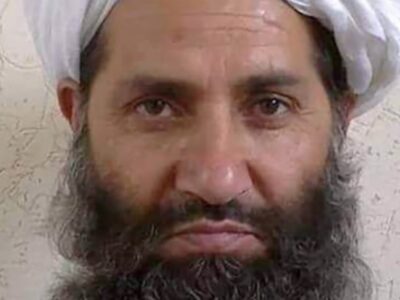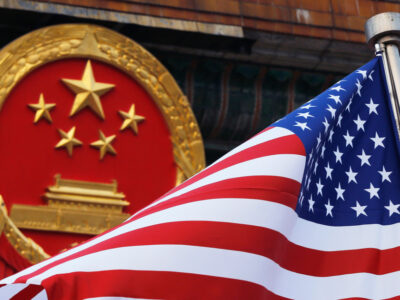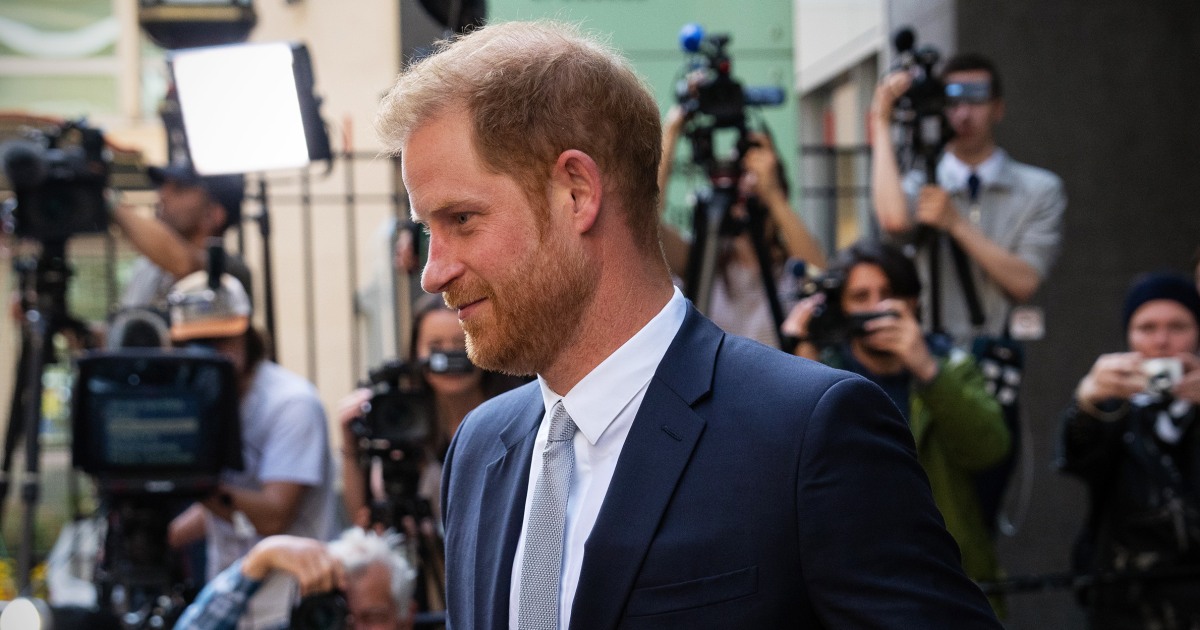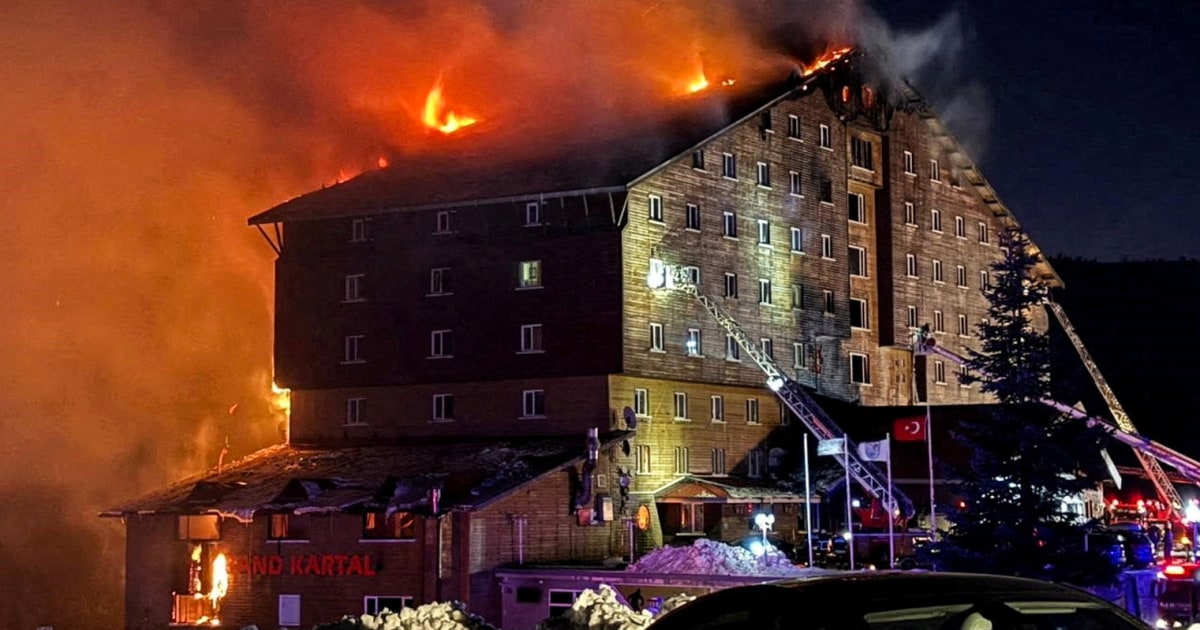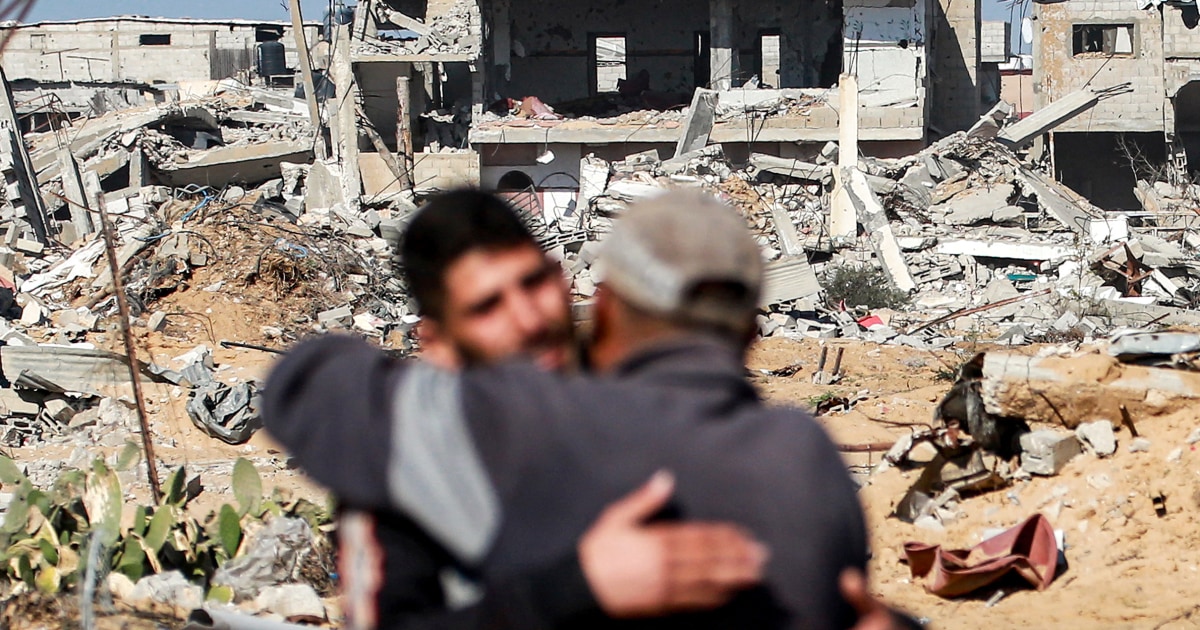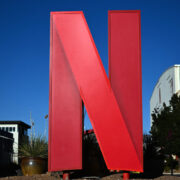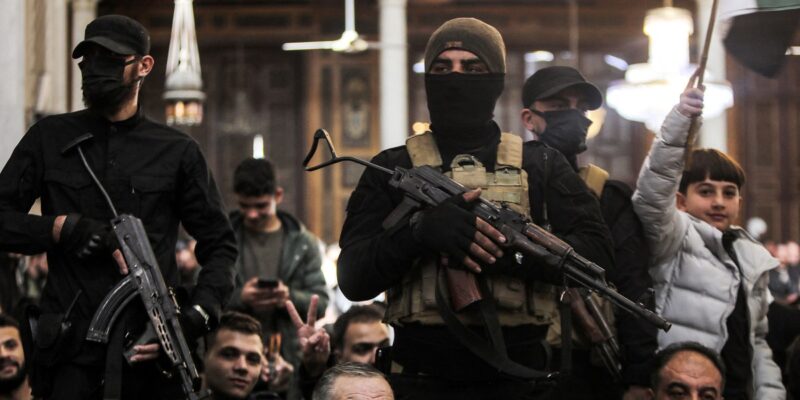
DAMASCUS, Syria — It had been less than two days since the fall of President Bashar al-Assad’s regime when two Islamist fighters knocked on the door of the Rev. Rafaat Abul Nasser’s Lady of Damascus Church, armed with assault rifles, pious beards and probing questions.
“I’m telling you, I was not afraid,” Nasser told NBC News on Wednesday. “Because St. Paul says to be strong in the Lord.”
The soldiers strolled through the ornate sanctuary, snapped photos of the icons and asked about the meaning of the cross and the crucifix. Then they left. And that, Nasser said, was mercifully that.
But the chilling visit is emblematic of the uneasy optimism that pervades this new Syria, where many are wondering whether the new regime will practice the inclusiveness and liberalism it preaches.
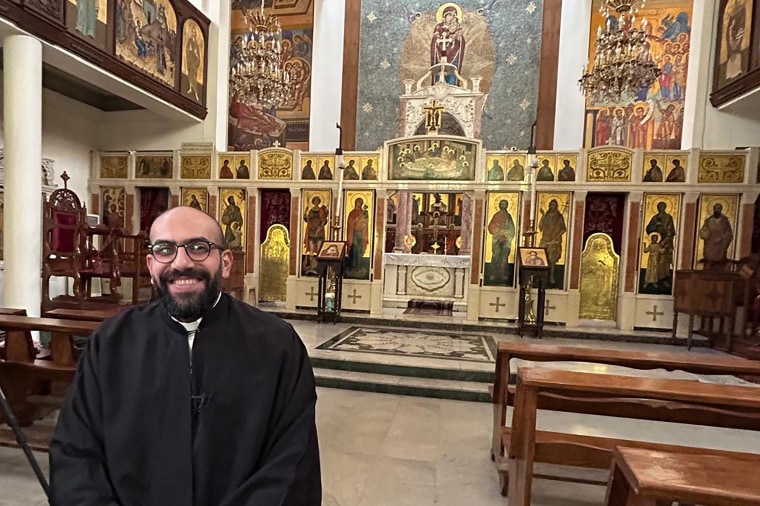
The Rev. Rafaat Abul Nasser.Matt Bradley / NBC News
Hayat Tahrir al-Sham, which led the charge on Damascus, was once closely linked with both Al Qaeda and the Islamic State, as were its leaders, and the U.S. and much of Europe still classify it as a terrorist organization.
But the group disavowed its allegiances with the more extreme jihadist groups years before it actually conquered Damascus, taking the capital with little resistance and ending almost 14 years of civil war.
“Precisely because we are Islamic, we will guarantee the rights of all people and all sects in Syria,” Mohammad al-Bashir, the newly installed transitional prime minister, told the Italian newspaper Corriere della Sera in an interview.
The group’s leader, Ahmad al-Sharaa, appears to have changed his clothes as well as his mind, sporting a trimmer beard, simple military uniforms and even sometimes business suits.
He has also retired his nom de guerre, “Abu Mohammad al-Jolani,” and guaranteed rights for women, minority groups and supporters of the old regime.
But anxiety around the new leadership remains, and while some rights groups have acknowledged HTS’ positive language, they have also highlighted the group’s poor human rights record in regions it has governed in recent years, particularly in Idlib province in Syria’s northwest.
In a report last year on human rights practices in Syria, the U.S. State Department said HTS had “reportedly permitted confessions obtained through torture and executed or forcibly disappeared perceived opponents and their families.”
HTS held detainees “incommunicado in secret detention facilities referred to as ‘security prisons,’” it added, citing another study by the United Nations Commission of Inquiry for Syria.
Its rise is particularly vexing for Syria’s religious minorities, who were often pitted against one another during the ironfisted rule of Assad and the years of civil war.
While about three-quarters of Syrians are HTS’ Sunni Muslim co-religionists, the rest of the population is a kaleidoscope of Shiite Muslims and the Alawite minority sect, of which Assad was a member, which theologians consider an offshoot of that branch of Islam.
Christians and the Druze, a small Middle Eastern sect that derives its beliefs from Islam while placing heavy emphasis on philosophy and spiritual purity, are much of the rest of the population.
Last week, the road from Damascus to Lebanon was clogged with thousands of Syrians fleeing in the opposite direction, apparently uninterested in waiting to test the new regime’s purported tolerance.
“Those who took over the government, their thoughts are terrorists’” thoughts, said Ammar Shahbander, 32, a Shiite philosophy professor from Aleppo who was waiting to cross the border with his wife and two small children. “Maybe there will be a civil war. I have children. So of course I fear for them.”
Shahbander said he wasn’t uniquely afraid of HTS and its leader. After nearly 14 years of nightmarish civil war fought by ordinary citizens, he said, his main concern is about the Syrian civilian population that is now addled by sectarianism, vengeance and easily accessible weapons.
“HTS maybe can control all these elements,” he said. “Today there is individual behavior. Maybe they will kill me or kill anyone. Can Jolani control this behavior?”
Jolani and his appointed prime minister, al-Bashir, have also said that welcoming Syrian refugees from abroad is among their top priorities. But despite their positive liberal signaling, some Syrians abroad are reluctant to return to a Syria that is not only destroyed but also dominated by fundamentalists.
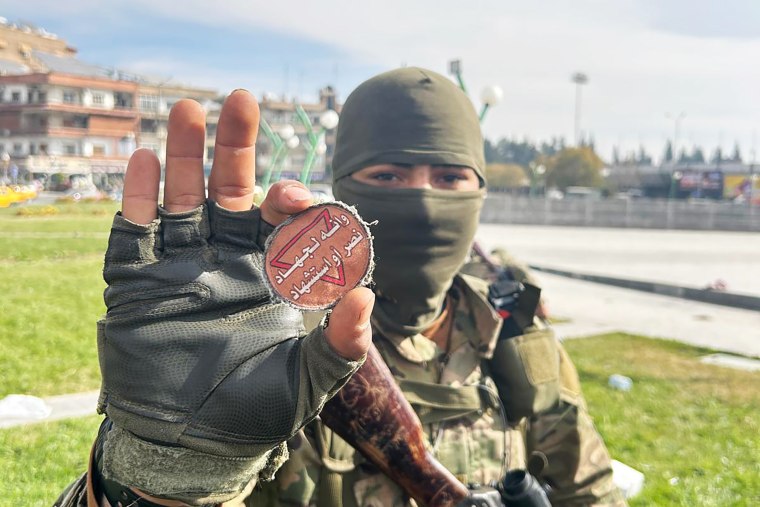
Khatab Shawi said he might go and fight in Gaza.Matt Bradley / NBC News
Abdulwahed Danou, an Arabic instructor from Aleppo, said over text message last week that his asylum application in the Netherlands was put on hold after Assad was ousted. Several European governments have already announced plans to send Syrian refugees back.
“I am totally lost. My head is spinning,” he wrote. “I would not like to be ruled by jihadists or extremists.”
Even when HTS’ rank and file make all the right noises, their appearance and behavior betray a profound conservatism. At a traffic circle near Nasser’s church, a cluster of camouflage-clad fighters lounged on manicured grass.
They spoke freely about their fight for freedom as well-wishers crossed the busy intersection to congratulate them and offer them snacks. One of the young militiamen insisted that Syria’s minorities had nothing to fear under the new regime.
“I will stay in my path, the path of jihad,” Khatab Shawi, 21, one of the soldiers, said when he was asked what he planned to do after the revolution. “Or I will go to our brothers in Gaza, and we will be martyrs for the sake of God. Hopefully after this war we will go to Gaza.”

